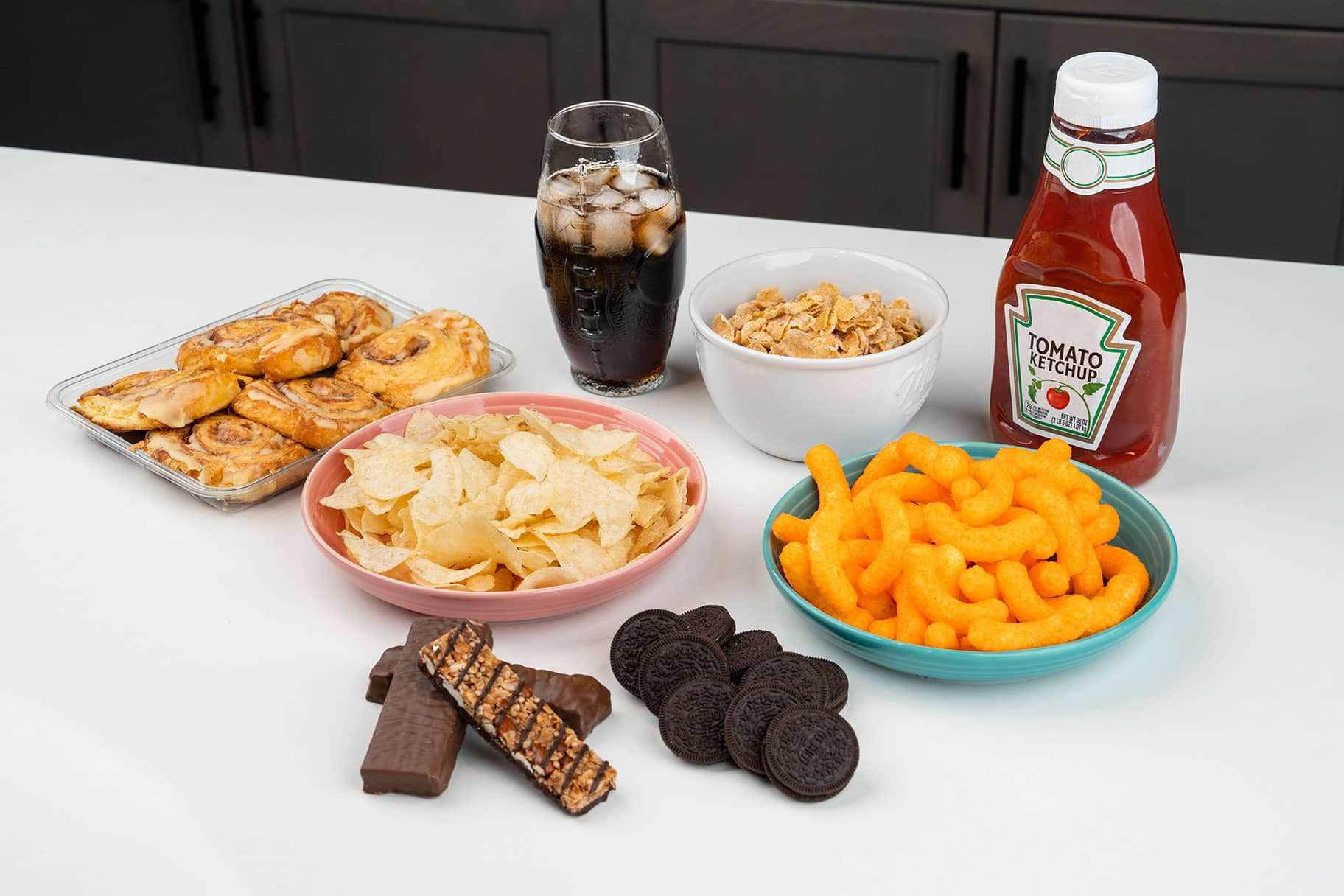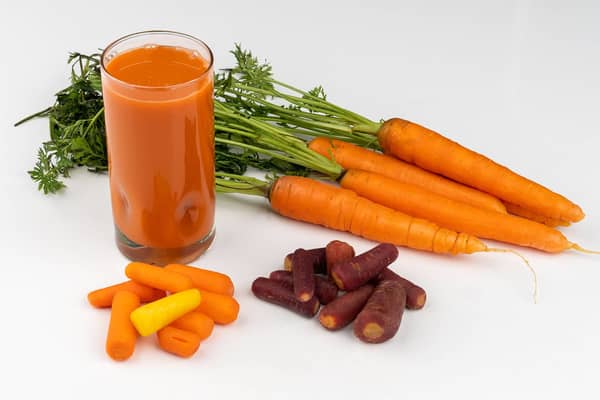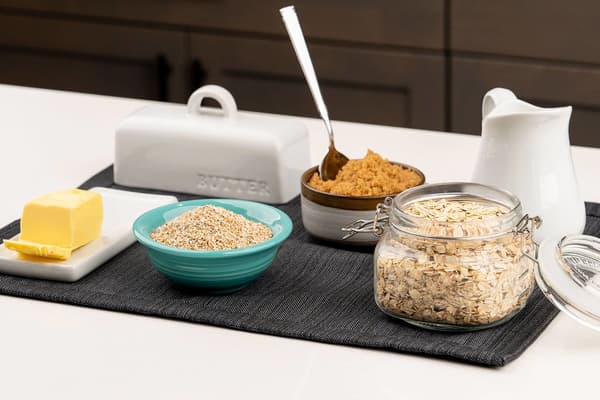What Are Empty Calories?
Nutrition
Calories serve as fuel for the body but some don't offer any additional nutrition.

Calories. Over the years, the word has undoubtedly developed a negative reputation, likely born out of the myriad of low-calorie diet programmes (and doctrine) that fewer calories are synonymous with better health.
Before diving into what empty calories are, it's important to attach a definition to the calorie. A calorie is simply described as a unit of energy found in all three macronutrients: protein, fats and carbohydrates. When food is consumed and digested, nutrients are then released in the form of glucose (the simplest form of carbohydrates), amino acids (the simplest form of protein) or fatty acids and then shuttled to cells, either to be used immediately or stored for later use. This process is imperative, considering every single cell in the human body requires energy to carry out its respective functions.
(Related: 4 Healthy Starters for Your Next Dinner Party, According to a Registered Dietitian)
Debunking the Myth: All Calories Are Created Equal

There is much debate on how calories really affect the body, specifically regarding weight loss. For years it was thought that "a calorie is just a calorie" meaning, a calorie from cake was no different to a calorie from broccoli. At least, that was the argument around weight maintenance. Researchers supporting this case argued that as long as someone was in a calorie deficit, they'd lose weight.
Recent research has begun to debunk the idea that a calorie is just a calorie. In a randomised clinical trial—found in a 2018 issue of the journal JAMA—researchers found that participants who were assigned to a healthy low-fat or healthy low-carbohydrate diet lost weight by eating whole foods. This included prioritising lean proteins and vegetables, for example, and cutting back on added sugars, processed foods and refined grains.
The ground-breaking takeaway from this study? Calorie quality matters more than quantity. Researchers came to this conclusion due to the fact that weight loss occurred in both diet groups with the instruction to simply include more whole foods in their diet. Neither group was instructed to restrict calories.
What Are Empty Calories?
Similar to how there are different types of fuel to choose for your car, the same is true for calories. There are calories from foods that pack a lot of nutrition. And there are also calories from foods that are void of vitamins, minerals, protein, antioxidants and fibre. The latter type of calories have long been known as "empty calories".
Though, it's challenging to find one standard definition of empty calories.
The Healthy Eating Index, or HEI, is a research tool used to assess diet quality in scientific studies and governmental reports. It is based on the Dietary Guidelines for Americans set by the US government. The 2010 version of the HEI featured an empty calorie category, which included added sugars, alcohol and solid fats. However, the most recent HEI (2015) removed the category and specifically listed added sugars and saturated fats as items to eat in moderation. This change was made to reflect the suggestions made in the most recent Dietary Guidelines for Americans.
Types of Empty Calories

1.Added Sugars
According to the Centres for Disease Control and Prevention, any sugar or syrup that is added to food or beverages when they are processed or prepared is considered an "added sugar".
There are more than 60 different names for sugar that one might see on an ingredient list on a food label, making it hard to spot the source of added sugar, but it is estimated that added sugars are present in about 74 percent of packaged foods in the US. Common examples of foods that contain added sugars are baked goods, cereals, some protein bars and even condiments such as ketchup.
For context, added sugars provide 4 calories per gram, meaning if a food contains 10 grams of added sugar, then 40 calories are coming from the sugar alone—excluding all other ingredients.
2.Alcohol
Any type of alcohol, whether it be beer, liquor or wine contains 7 calories per gram. For instance, a standard 5oz glass of wine (142ml approx.) contains roughly 14 grams of pure alcohol, meaning about 100 calories are coming from just alcohol.
Why do any of these numbers or facts matter? A calorie is a unit of energy and the type of energy that comes from an alcoholic beverage offers minimal nutritional value. Of course, some alcoholic beverages, such as wine and some beers, do contain moderate amounts of antioxidants. However, the majority of alcohol solely provides calories without much nutrition.
3.Solid Fats
Solid fats contain nine calories per gram, so consuming an item with 10 grams of saturated fat would equate to 90 calories.
The solid fats that the HEI previously classified as empty calories are trans and saturated fats. These fats are solid at room temperature, unlike oils such as olive, avocado, canola, sunflower and sesame oil. Examples of solid fats include shortening, coconut oil, butter and animal fat (bacon, chicken, pork and beef).
Ultra-processed Foods Are Often Major Sources of Empty Calories
Aside from alcohol, it's uncommon for sugar or fats to be consumed on their own. Usually, these ingredients are found within food—primarily ultra-processed foods.
Ultra-processed foods are manufactured by food companies and include excess salt, added sugars, fats, flavourings and preservatives to make a food edible and highly palatable—at the expense of nutritional integrity. Examples of ultra-processed foods include packaged foods, often found in a corner shop like fizzy drinks, packaged baked goods, hot dogs, crisps and many frozen food items.
How To Determine What Foods Contain Empty Calories?

It's important to note that while some foods can contain solid fats—or even added sugars—they may be nutrient-dense in other ways. For example, steak contains saturated fats, but it also contains protein, iron and B vitamins. In this scenario, yes, some of the calories in steak are sourced from saturated fats, which do not provide nutritional benefits. But, all of the calories in this food item are wrapped up in meat, which does provide loads of nutrition to the body.
The same can be said for Greek yoghurt, of which flavoured varieties may be a bit high in added sugars. Ultimately, yoghurt is rich in vitamins, minerals, protein and fat—giving the body what it needs to function.
(Related: What Is an Iron Deficiency and How Do I Know if I Have It?)
Compare steak and Greek yoghurt to the calories in a packaged baked good, which contains saturated fats and added sugars. These calories are also wrapped up in refined carbohydrates, sodium and flavourings, which do not provide the body with many benefits. In this comparison, the steak and Greek yoghurt contain some empty calories, but when evaluated next to a packaged baked good, the latter strictly contains empty calories. There is very little nutritional advantage in a packaged muffin, for example.
However, it's OK to eat these foods in moderation—restriction can lead to a host of other issues, such as disordered eating.
The Bottom Line

The concept of empty calories is vast and can, frankly, be confusing. The term itself leads people to think of food in a very reductionistic way, which is usually not helpful (or healthy). Remember, calories serve as fuel for the body. While all calories will help the body operate, some have the added bonus of also nourishing the body with the nutrients it needs to run well.
Even cake and crisps should not necessarily be avoided, rather they should be part of a person's diet—not the majority of it. At the end of the day, it's important to think of your diet as a whole. Try to make the best food choices with what's available at the supermarket or wherever you buy food. Bear in mind that the number of calories a food contains doesn't hold the same weight as the quality of those calories.
Words by Sydney Greene, MS, RDN.





